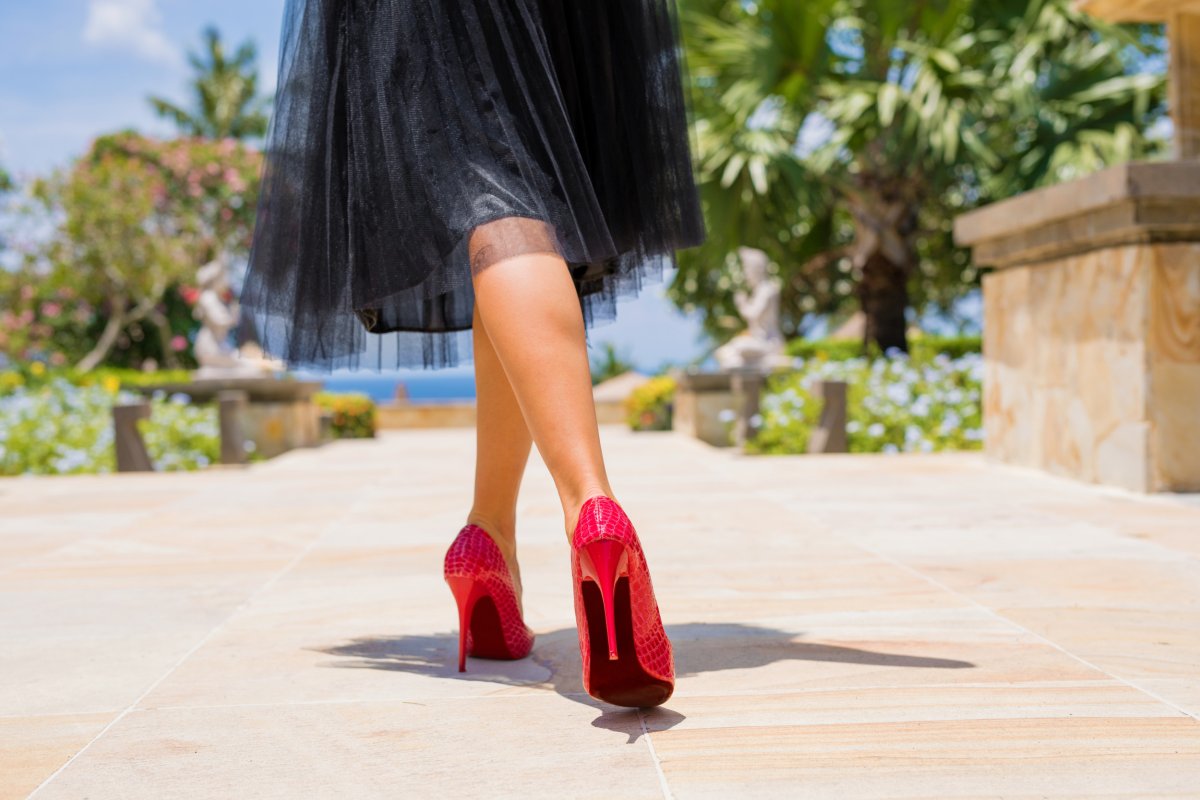Frequently wearing high heels could help you walk more efficiently in flat shoes, a new study found.
Researchers at the University of Texas at Austin and Georgia Institute of Technology found that donning stilettos could help strengthen the tendons in the ankles and calves, making the legs more powerful.
Although many people find high heels uncomfortable, the study suggests that wearing them may help strengthen the legs of people with mobility problems.

For the study, the team asked eight men and women to wear high-heeled shoes every day for 14 weeks. The shoes were custom-made Chuck Taylor All Star Converse sneakers fitted with three-inch heels.
Then, the researchers measured the length of the participants' calf muscles and the stiffness of their Achilles tendons. They also determined how much energy they used to walk for five minutes on a treadmill, in both high heels and flat shoes. People who use less energy than others are more efficient walkers.
After walking in heels daily for 14 weeks, the volunteers were tested again. The volunteers who had mostly given up on wearing heels—because they did not want to wear them, or because they were uncomfortable—showed no changes in their legs or walking.
However, those who wore the heels consistently tended to have shorter calf muscles and stiffer Achilles tendons than before. They also became more efficient walkers, as they used less energy to go the same speed on the treadmill—when wearing both heels and flat shoes.
Overall, participants who wore high heels for more than 1,500 steps per day experienced a 9 percent decrease in their net metabolic power during walking in flat-soled shoes.
The habitual wearing of high heels may structurally remodel the leg muscle tendons and alter their functional capabilities, the researchers found. When wearing heels, the angle of the feet means the calf muscles operate at shorter lengths, which affects muscle metabolism.
"Accordingly, habitual high-heel users may enjoy the benefits of less effortful walking for weeks following their final footwear use," the researchers wrote in the paper.
It's not all good news for fans of skyscraper heels, though. The study did not track whether participants experienced pain as a result of wearing heels. Other research has found that wearing them can cause a plethora of problems because they place excessive strain on the back and feet.
The full findings of the study were published in the Journal of Applied Physiology.
Do you have a tip on a science story that Newsweek should be covering? Do you have a question about kinesiology? Let us know via science@newsweek.com.
Uncommon Knowledge
Newsweek is committed to challenging conventional wisdom and finding connections in the search for common ground.
Newsweek is committed to challenging conventional wisdom and finding connections in the search for common ground.
About the writer
To read how Newsweek uses AI as a newsroom tool, Click here.








